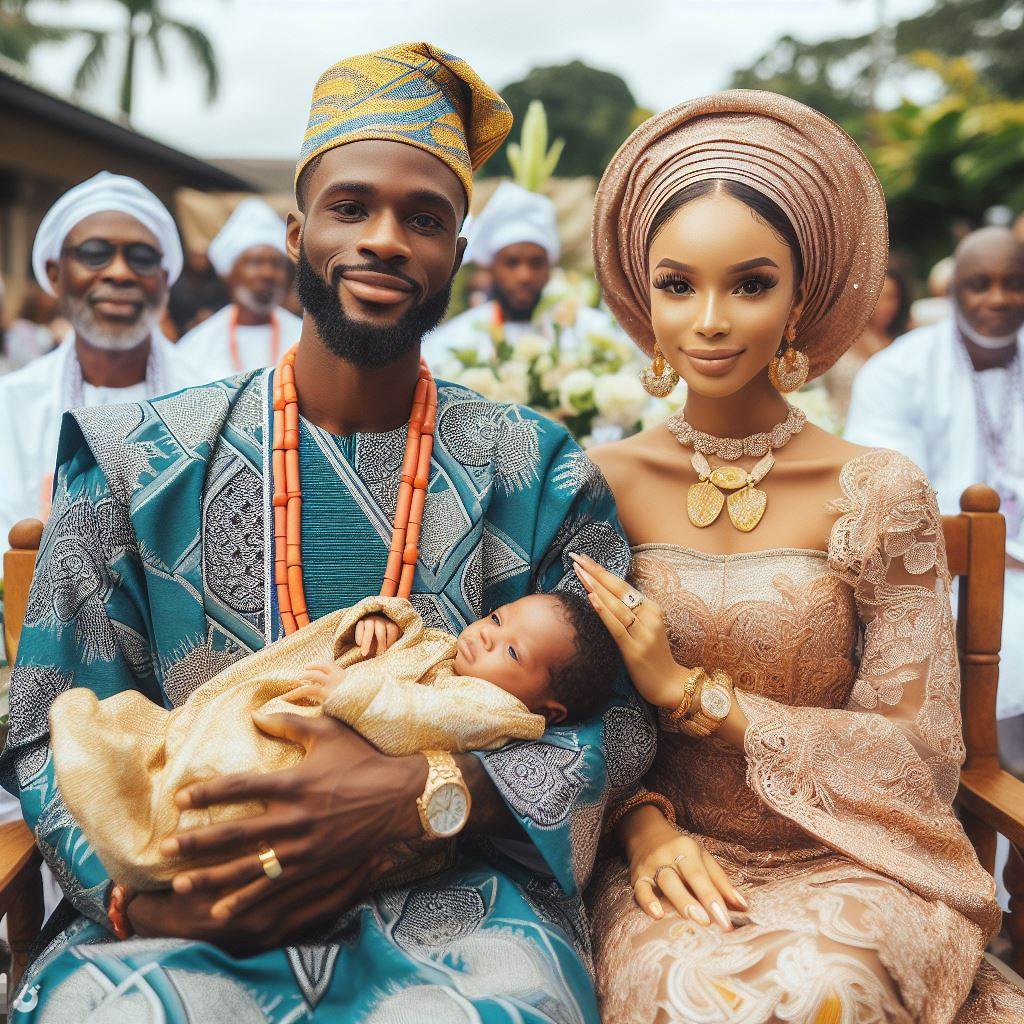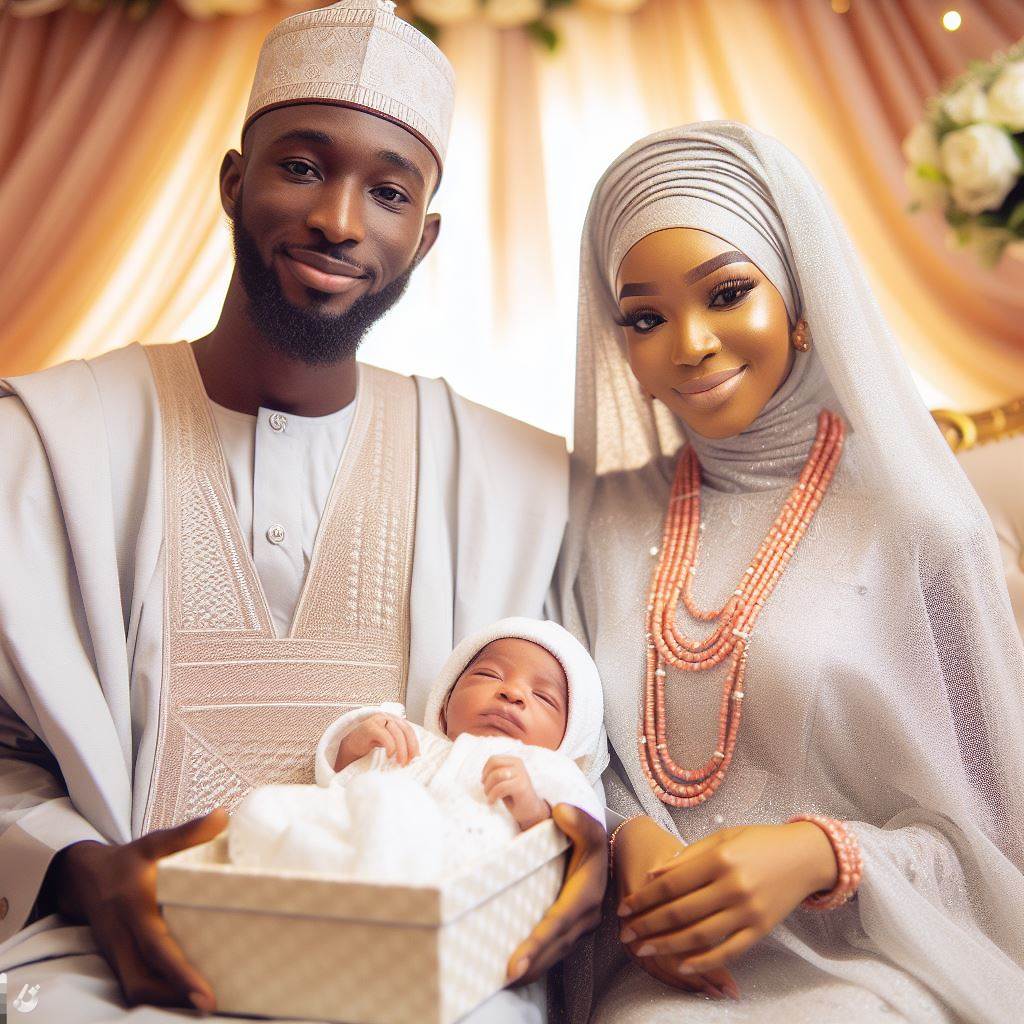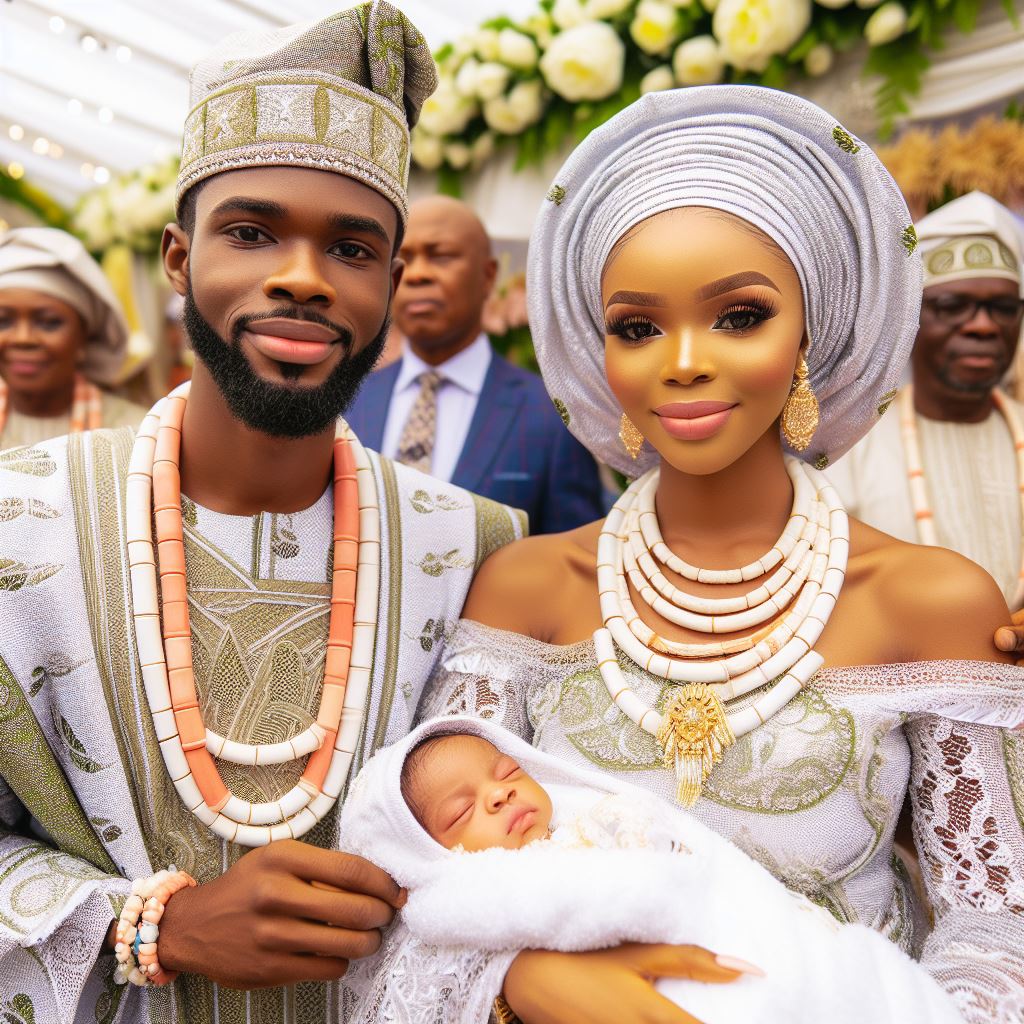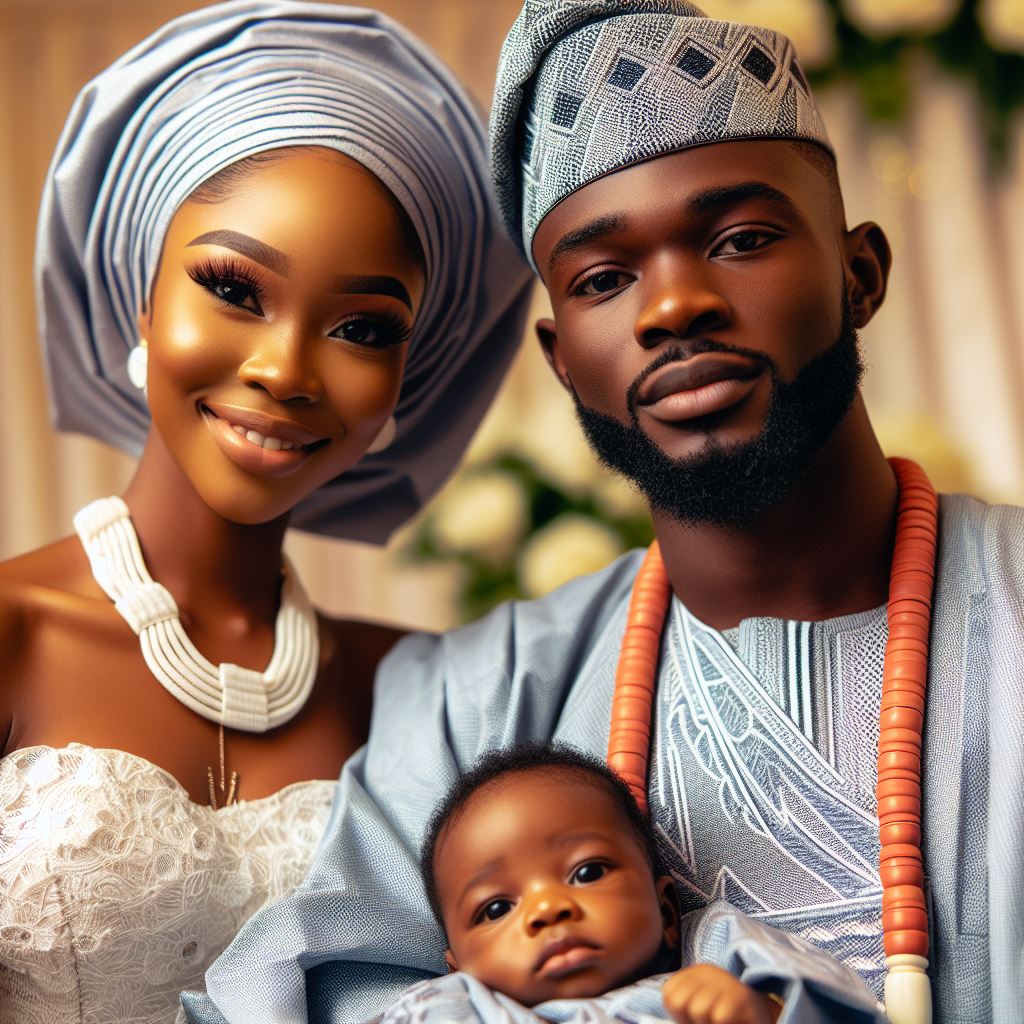Introduction
In Nigeria, naming a child is a profound tradition steeped in rich cultural significance.
Names hold a revered place in Nigerian heritage, representing lineage, history, and aspirations.
This blog unveils the enchanting world of Nigerian royal names, diving into their meanings and the deep-rooted importance they hold within Nigerian society.
Nigerian culture treasures names as more than mere identifiers; they signify a person’s destiny, character, and familial connections.
Each name carries a story, a legacy woven into the tapestry of the nation’s diverse ethnic groups.
Understanding this significance helps appreciate the weight of choosing a name for your child.
This blog aims to serve as a guide for parents seeking meaningful Nigerian royal names for their newborns.
It delves into various naming customs across different Nigerian tribes, showcasing the richness and diversity embedded in their naming traditions.
Whether it’s Yoruba, Igbo, Hausa, or other ethnic groups, each has its distinct naming conventions and significance.
Expect insights into the linguistic origins and cultural context behind popular Nigerian royal names.
By exploring the meanings and histories behind these names, parents can make informed choices that honor their heritage and heritage.
Through this blog, readers will grasp the importance of bestowing a name that encapsulates aspirations, values, and ancestral heritage.
It aims to empower parents in making a thoughtful and culturally respectful decision when naming their little prince or princess.
Prepare to embark on a fascinating journey through Nigerian heritage, exploring the profound significance of names.
Discover the beauty, depth, and cultural richness behind Nigerian royal names, and embrace the tradition while cherishing the legacy it bestows upon your child.
Parenting Made Just for You
Get personalized Parenting Solutions tailored to your child’s needs. Transform your parenting journey with expert guidance in 1-3 days.
Get StartedSignificance of Nigerian Royal Names
The historical and cultural significance of royal names in Nigeria
Nigeria has a rich history and culture that is reflected in its royal names.
These names hold immense historical and cultural significance, reflecting a sense of pride and heritage among Nigerians.
They also highlight traditional values associated with royalty.
Throughout history, royal names in Nigeria have served as a means of honoring ancestors and preserving a family’s lineage.
These names are carefully chosen to pay homage to the achievements, virtues, and qualities of past rulers.
They serve as a reminder of the royal lineage and the responsibilities associated with it.
How these names reflect a sense of pride and heritage
In Nigerian culture, royal names are not just names, but a representation of power, authority, and respect.
They embody the noble character and virtues that are expected of a royal individual.
These names are a source of inspiration and motivation for the younger generation to uphold the values and traditions of their ancestors.
Nigerian royal names also play a crucial role in establishing a sense of pride and identity among Nigerians.
They provide a connection to the country’s rich history and heritage, giving individuals a sense of belonging and cultural identity.
These names serve as a reminder of the greatness and achievements of past rulers, instilling a sense of pride and admiration among Nigerians.
Traditional values associated with royal names
Moreover, royal names in Nigeria serve as a way to preserve and promote cultural traditions.
They carry with them the weight of cultural heritage and act as a symbol of the traditions and customs passed down through generations.
Unveil the Perfect Name that Tells Your Family's Story
Let us help you find a name that embodies your family's values, traditions, and dreams. Our personalized consultation weaves cultural insights to create a name that's uniquely yours.
Get StartedBy using these names, Nigerians keep their culture alive and ensure that their traditions are not forgotten.
These names also carry a certain level of prestige and honor. They are used to distinguish the ruling class from the rest of society.
Nigerian royal names are associated with nobility, grace, and wisdom, which are highly regarded qualities in their society.
They denote a position of respect and authority, creating a sense of admiration and reverence for those who bear them.
In essence, Nigerian royal names hold immense historical and cultural significance.
They reflect a sense of pride and heritage among Nigerians, highlighting traditional values and emphasizing the importance of family lineage.
These names serve as a connection to the past, preserving cultural traditions and instilling a sense of identity and belonging.
Nigerian royal names are symbols of power, respect, and authority, representing the nobility and characteristics expected of the royal class.
Read: 2024 Trending Baby Names in Nigeria
Traditional Nigerian Royal Names for Princes
Popular Nigerian royal names for male children
In Nigerian culture, royal names hold great significance as they reflect the status, heritage, and aspirations of the individuals bestowed with these names.
Here are some popular Nigerian royal names for male children, along with their meanings, origins, and notable historical figures associated with them.
- Adetokunbo: Meaning “the crown has fallen from above” in Yoruba, this name signifies an individual who faces challenges and overcomes them with resilience. Notable figure: Prince Adetokunbo Kayode.
- Olatunde: Derived from Yoruba, this name means “wealth has returned” and represents someone who brings prosperity wherever they go. Notable figure: Olatunde Ojo, the first Nigerian professor of mathematics.
- Adebowale: Meaning “the crown has come home” in Yoruba, this name symbolizes a person who restores honor and pride to their lineage. Notable figure: Adebowale Adefuye, Nigeria’s ambassador to the United States.
- Eze: A popular Igbo name, Eze means “king” or “ruler.” It signifies leadership qualities and a noble heritage. Notable figure: Eze Nri Anyamike, the first Eze Nri (traditional ruler of the Nri Kingdom).
- Obafemi: Derived from Yoruba, this name means “the king loves me.” It represents individuals who are cherished and protected by their rulers. Notable figure: Obafemi Awolowo, a prominent Nigerian nationalist and statesman.
Other popular names
- Adebayo: Meaning “crown meets joy” in Yoruba, this name signifies an individual who brings happiness and fulfillment to their community. Notable figure: Adebayo Adedeji, a renowned Nigerian economist and diplomat.
- Chukwudi: Derived from Igbo, this name means “God lives” and represents a deep faith and connection with the divine. Notable figure: Chukwudi Chukwu, a Nigerian football player who played for the national team.
- Olumide: Meaning “God has come” in Yoruba, this name signifies the presence of God in an individual’s life. Notable figure: Olumide Oyedeji, a former Nigerian professional basketball player.
- Afam: Derived from Igbo, this name means “beautiful destiny” and represents a promising future full of success and accomplishment. Notable figure: Afam Okereke, a Nigerian film director and producer.
- Ikenna: Meaning “power of the father” in Igbo, this name symbolizes a person who carries the strength and wisdom of their ancestors. Notable figure: Dr. Ikenna Okafor, a Nigerian medical doctor and philanthropist.
Notable historical figures or personalities associated with these names
These traditional Nigerian royal names not only hold cultural significance but also carry the weight of history and noble lineages.
They serve as a constant reminder of the rich heritage and aspirations of the Nigerian people.
It’s important to note that these names can be used by anyone who wishes to connect with Nigerian culture or honor their Nigerian roots.
Whether you have royal lineage or not, embracing these names can be a meaningful way to celebrate Nigeria’s rich history and traditions.
In fact, the traditional Nigerian royal names for male children reflect the values of resilience, prosperity, honor, and leadership.
They have been carried by notable historical figures who have contributed to various fields, from politics and economics to sports and arts.
Embracing these names allows individuals to connect with Nigerian culture and pay homage to their heritage.
Read: Unisex Nigerian Names and Their Roots
Traditional Nigerian Royal Names for Princesses
Popular Nigerian royal names for female children
Nigerian culture is rich and diverse, with a fascinating history of royalty.
The names given to royal children hold great significance, reflecting the country’s traditions and heritage.
If you are blessed with a beautiful baby princess and want to honor your Nigerian roots, here is a list of popular Nigerian royal names for your little one.
- Adaora: This name is of Igbo origin and means “daughter of all.” It signifies the love and adoration the community has for the child.
- Ajoke: Originating from the Yoruba tribe, Ajoke means “one who comes to pamper.” It symbolizes a child who brings joy and happiness to the family.
- Zainab: This name is of Hausa origin and means “fragrant flower.” It represents the beauty and elegance associated with a princess.
- Ifeoma: Also of Igbo origin, Ifeoma means “good thing.” It signifies the blessings and positivity that a child brings to her loved ones.
- Amina: Originating from the Hausa tribe, Amina means “trustworthy” or “honest.” It is associated with strength and integrity, qualities fit for a princess.
- Osayi: This name is from the Edo tribe and means “God has given.” It represents a child who is seen as a gift from a higher power.
- Abeni: Derived from the Yoruba tribe, Abeni means “we asked for her, and behold, we have her.” It emphasizes the joy and gratitude felt by the family.
- Kemi: Also of Yoruba origin, Kemi means “crown” or “royalty.” It reflects the regal qualities of a princess and her connection to the royal lineage.
- Fatimah: This name is from the Hausa tribe and means “weaned one” or “baby girl.” It carries a sense of tenderness and affection.
- Ebele: Originating from the Igbo tribe, Ebele means “mercy” or “kindness.” It symbolizes a princess who embodies compassion and empathy.
Notable historical figures or personalities associated with these names
These names have been associated with notable historical figures and personalities who have left a lasting impact on Nigerian culture.
One prominent historical figure associated with the name Amina is Queen Amina of Zazzau.
She was a 16th-century queen who ruled the city-state of Zazzau (now Zaria).
Queen Amina is remembered for her military skills and strategic leadership, expanding the territory of Zazzau and establishing it as a powerful kingdom in northern Nigeria.
Another historical figure associated with the name Kemi is Princess Kemi Adeosun.
She served as Nigeria’s Minister of Finance from 2015 to 2018, making significant contributions to the country’s economic growth and development.
These examples showcase the significance of the royal names and the legacy they carry within Nigerian history and society.
By choosing a traditional Nigerian royal name for your princess, you not only honor your heritage but also embrace the cultural richness of Nigeria.
These names are a reflection of the love, joy, and strength that a princess brings to her family and community.
Remember, the name you choose for your child will be a part of their identity, rooted in the rich tapestry of Nigerian tradition.
Read: Hausa Baby Names: Ancient and Modern Picks
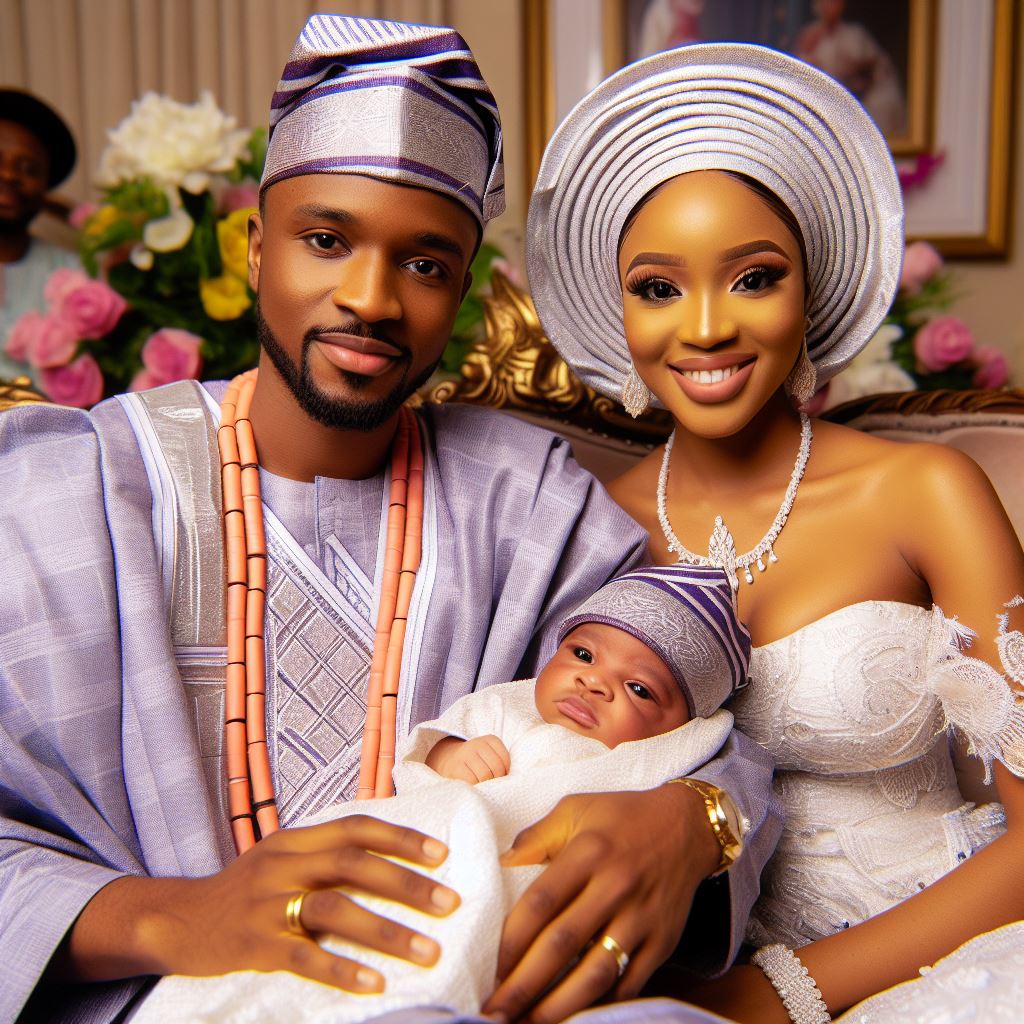
Modern Nigerian Royal Names for Princes and Princesses
Welcome back to our blog series on Nigerian royal names! In this section, we will delve into the fascinating evolution of Nigerian royal names in contemporary times.
We will also explore examples of modern royal names that reflect cultural diversity and individuality.
Lastly, we will discuss how parents can combine traditional and modern elements when choosing a royal name for their child.
The Evolution of Nigerian Royal Names
Nigerian royal names have undergone a significant transformation over the years.
Traditional royal names linked specific ethnic groups; modern names embrace cultural diversity and personal identities.
Globalization, urbanization, and cultural exchange drive this shift, impacting it through various factors.
Royal names historically passed down through generations, honoring ancestors and upholding family legacies.
However, modern Nigerian parents now seek names that reflect their child’s unique identity and aspirations.
This desire for individuality has led to an emergence of new royal names that blend traditional elements with contemporary trends.
Examples of Modern Royal Names
One prominent example of a modern Nigerian royal name is Adeola, which means “crown of wealth” in Yoruba.
It encompasses the traditional concept of royalty while embracing prosperity and success.
Another modern name is Obinna, meaning “father’s heart” in Igbo, reflecting the value of strong family bonds.
Amarachi, a name of Igbo origin, has gained popularity in recent years. It translates to “God’s grace” and symbolizes the belief in divine blessings.
Adaeze, meaning “daughter of a king” in Igbo, celebrates the empowerment of women and their role in the modern monarchy.
Furthermore, Nigerian parents are increasingly incorporating names from different ethnicities into their children’s royal names.
For instance, a child may be named Ifeoluwa, combining the Yoruba word Ife meaning “love” or “affection” with the Yoruba word Oluwa, meaning “God.”
This amalgamation showcases the blending of ethnic cultures and highlights the uniqueness of the child.
Combining Traditional and Modern Elements
When choosing a royal name for their child, parents can find a balance between honoring tradition and embracing modernity.
One approach is to incorporate traditional names as middle names, while selecting a modern name as the first name.
For example, a child could be named Oluwatobi Oba, where Oluwatobi means “God is great” in Yoruba, and Oba refers to a traditional royal title.
This combination pays homage to both the child’s cultural heritage and their individuality.
Another approach is to create a unique name that combines elements from different Nigerian cultures.
For instance, a child could be named Zaraeze, merging Zara, a name of Arabic origin meaning “flower,” with Adaeze, the Igbo name meaning “daughter of a king.”
This blended name becomes a symbol of cultural diversity and personal identity.
The evolution of Nigerian royal names in contemporary times showcases a shift towards embracing cultural diversity and individuality.
Modern royal names combine traditional elements with personal aspirations, reflecting the changing landscape of Nigerian society.
Parents can draw inspiration from this evolution and choose a royal name that honors their child’s cultural heritage while embracing their unique identity.
Whether it’s blending traditional and modern names or incorporating different ethnicities, the possibilities are endless.
Join us in the next section, where we will explore the significance of Nigerian royal names for the wider society and discuss their role in preserving cultural heritage.
Read: Igbo Names for Babies: Meanings Explained!
Factors to Consider When Choosing a Nigerian Royal Name
When it comes to choosing a Nigerian royal name for your prince or princess, there are several factors that parents should consider.
These factors go beyond mere preference, as they encompass family history, cultural context, and personal significance.
In this section, we will explore the important considerations in selecting a royal name that reflects the rich Nigerian heritage.
Family History
One crucial factor to keep in mind when choosing a Nigerian royal name is the family history.
Understanding the lineage and ancestry of your family can provide valuable insights into traditional naming customs and the meaning behind certain names.
By delving into your family’s past, you can honor your ancestors and pass on a legacy to future generations.
Cultural Context
Cultural context plays a pivotal role in selecting a Nigerian royal name.
Each ethnic group within Nigeria has distinct naming traditions and meanings attached to specific names.
For example, the Yoruba tribe often uses names with connections to gods or events.
The Igbo tribe, on the other hand, places importance on names that represent wealth and prosperity.
By considering the cultural context, parents can choose a name that honors their heritage.
Personal Preferences
Consider personal preferences but don’t overlook family history and cultural context; these are significant factors.
Parents should select a name that resonates with them and reflects the values they wish to instill in their child.
It is essential to ensure that the chosen name holds significance and emotional connection for both the parents and the child.
Consultation with Elder Family Members
Consulting with elder family members who are knowledgeable about traditional naming customs can provide valuable guidance.
These individuals can share their experiences, stories, and wisdom, ensuring that the chosen name aligns with cultural traditions.
They can also highlight the significance of certain names and their association with specific attributes or qualities.
Seek Expert Input
In addition to consulting with elder family members, seeking input from experts well-versed in Nigerian naming customs can be beneficial.
These experts can provide deeper insights into the historical and cultural meanings of various names.
Their expertise can assist parents in making informed decisions and selecting a name that represents the desired values and aspirations for their child.
Choosing a Nigerian royal name for your prince or princess is a deeply meaningful and important decision.
It goes beyond selecting a name based on personal preference; it encompasses family history, cultural context, and personal significance.
By considering these factors, consulting with elder family members, and seeking expert input, parents can ensure that they choose a name that resonates with their heritage and holds special meaning for their child.
Conclusion
Nigerian royal names carry profound cultural importance, demanding respect and careful consideration, not to be trivialized.
They are a reflection of heritage and serve as a connection to the past.
Choosing a meaningful name for your child is an opportunity to embrace your heritage and pass down important traditions.
Parents should take the time to research and understand the meanings behind Nigerian royal names.
They can seek guidance from elders or consult historical resources for inspiration.
By selecting a name that carries a deep cultural significance, parents can instill a sense of pride and identity in their children.
As we have seen, Nigerian royal names are not just random choices; they carry stories, values, and the weight of history.
Preserving and cherishing these names ensures passing our culture and traditions to future generations.
I encourage readers to share their experiences and favorite Nigerian royal names in the comments section or on social media.
Let us celebrate the richness of our heritage and inspire others to embrace their culture when naming their own prince or princess.
Together, let us honor our roots and keep our Nigerian royal names alive.
By doing so, we contribute to the preservation of our cultural identity for generations to come.

